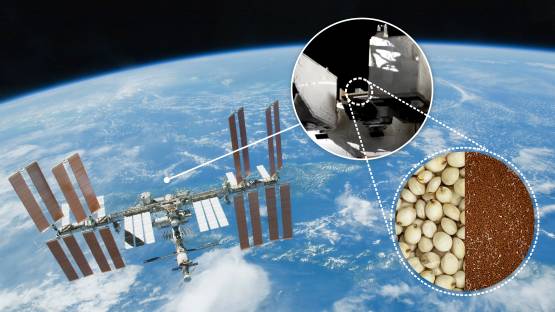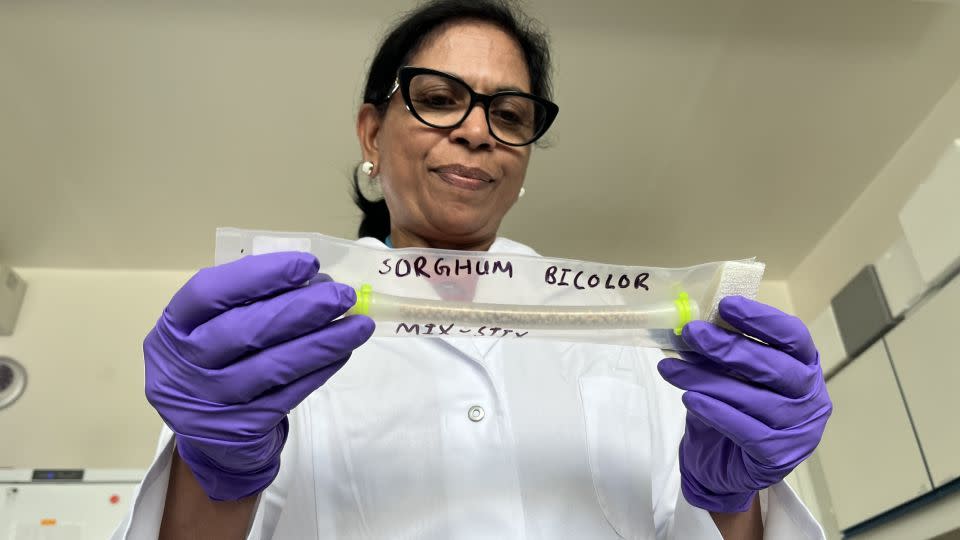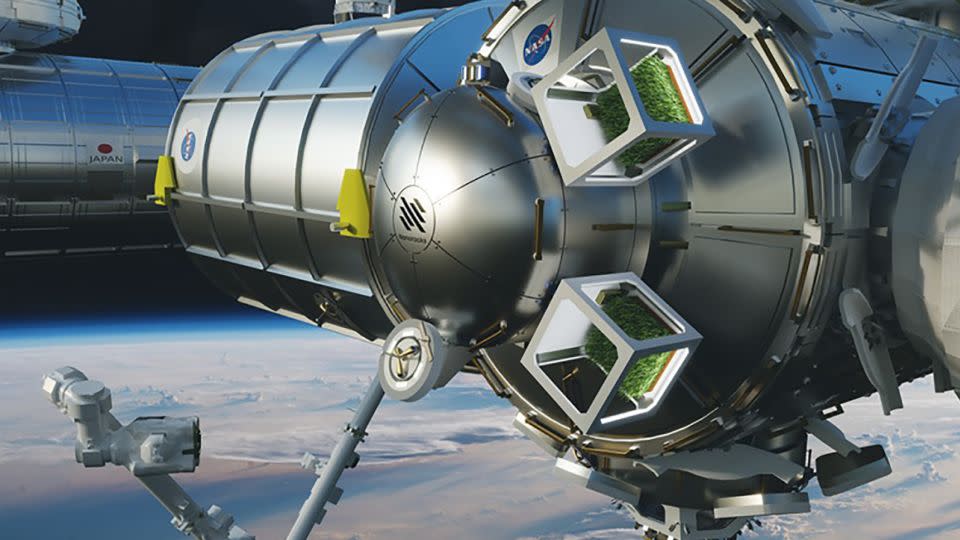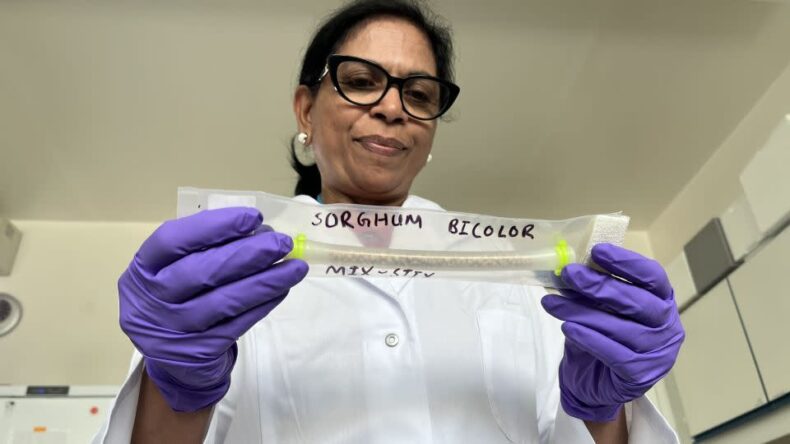In an unprecedented effort to find sustainable solutions to combat climate change, a team of visionary scientists has embarked on a remarkable mission: cultivating seeds in space. By capitalizing on the unique conditions beyond Earth’s atmosphere, these intrepid researchers are revolutionizing agriculture and laying the foundation for a greener, more resilient future. This groundbreaking endeavor aims to address pressing challenges posed by climate change while exploring uncharted frontiers of scientific innovation.

Led by a collaborative team of international experts, the ambitious project represents a partnership between NASA, SpaceX, and esteemed botanical institutions worldwide. Their shared objective is to leverage the immense potential of space exploration to establish a sustainable source of food and counteract the adverse effects of climate change on Earth’s ecosystems.
The initiative was born out of the realization that traditional farming methods are increasingly susceptible to the intensifying impacts of global warming. With rising temperatures, erratic weather patterns, and the growing specter of extreme weather events, concerns loom over our planet’s ability to sustainably nourish its ever-expanding population. In light of this imminent challenge, the scientists turned their attention skyward.

To bring their visionary plan to fruition, the team meticulously selected a diverse range of seeds known for their resilience and adaptability. These seeds, spanning a wide array of plant species, were carefully packed into specialized containers and sent aboard a SpaceX Falcon Heavy rocket, charting a course toward the International Space Station (ISS). Upon reaching orbit, the seeds will find their home in a custom-built cultivation module that replicates Earth-like conditions, enabling germination and growth in microgravity.
This extraordinary experiment holds the promise of unveiling invaluable insights into the potential effects of reduced gravity and cosmic radiation on plant growth. By studying the adaptability and thriving capacity of plants in the unique space environment, scientists anticipate gaining crucial knowledge that can be applied to enhance agriculture on Earth. Such advancements could aid in mitigating the impacts of climate change by identifying plant traits that foster resilience and bolster food production amid a shifting climate.
Furthermore, the project offers a platform for testing innovative technologies and sustainable farming methods. The cultivation module aboard the ISS harnesses cutting-edge LED lighting systems, optimized nutrient delivery mechanisms, and precise monitoring of plant growth, all geared towards maximizing efficiency while minimizing resource consumption. These advancements have the potential to revolutionize traditional farming practices, curtail water usage, and reduce reliance on chemical fertilizers, ultimately rendering agriculture more sustainable and environmentally friendly.

While the primary objective of this endeavor lies in ensuring a more resilient food supply for our planet, its implications extend far beyond agriculture. As humanity delves deeper into space exploration, the prospect of establishing human settlements on other celestial bodies becomes increasingly conceivable. Acquiring the knowledge of how to cultivate food in space represents a crucial step toward achieving self-sufficiency in extraterrestrial environments. The insights gained from this groundbreaking project will prove invaluable for future space exploration missions, including those aimed at colonizing other planets.
The initiative has captured the imagination and garnered support from scientists, environmentalists, and space enthusiasts alike. Dr. Sarah Thompson, a prominent botanist and key figure in the project, expressed her enthusiasm, stating, “This collaboration serves as a testament to humanity’s ingenuity and our resolve to tackle the challenges we face. By fusing the wonders of space exploration with our pursuit of a sustainable future, we are genuinely pushing the boundaries of what is achievable.”
As the seeds germinate and flourish in the nurturing environment of space, hope takes root on Earth. This pioneering endeavor represents a bold stride towards securing a sustainable future for our planet, offering tangible solutions to mitigate the effects of climate change and foster a greener, more resilient world. By harnessing the power of space exploration and scientific ingenuity, these visionary scientists are sowing the seeds of hope for generations to come.
In a world yearning for environmental preservation, the effort to grow seeds in space emerges as an inspiration and a testament to the possibilities that lie ahead. As we cast our gaze toward the stars, we are humbled by the realization that the answers to our most pressing challenges may reside beyond the confines of our blue planet.













